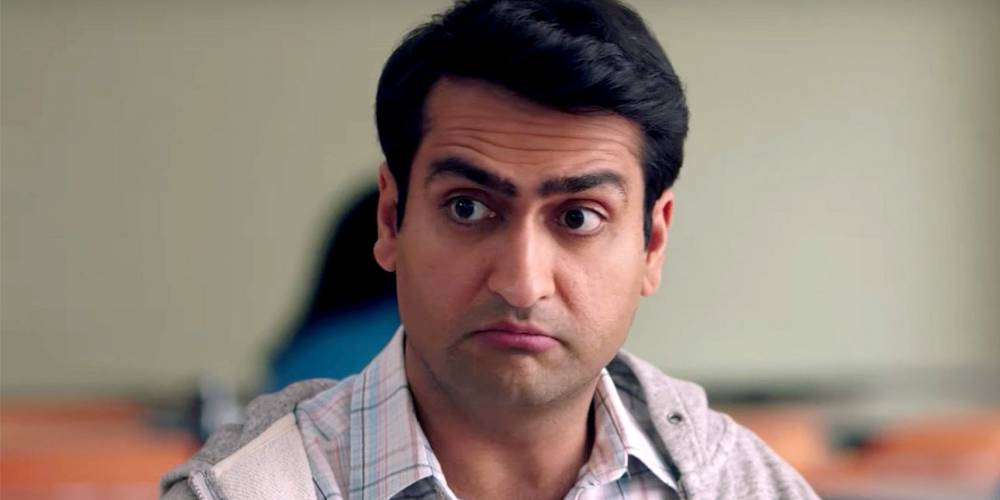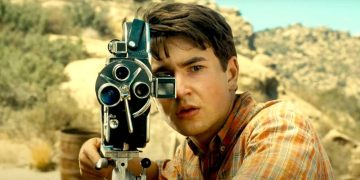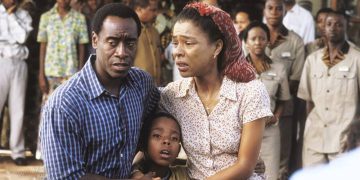Telling a story that actually happened on the big screen is a tough job. What's even harder is telling a story that happened to you.
In recent years, the likes of Steven Spielberg and Kenneth Branagh have seen success with their own tellings of their own exploits in their youth—so much so that others are catching on and doing the same.
Filmmakers are now expressing their own stories in film, showing how they themselves saw life during their younger years.
It's a fascinating trend that has caught my own eye. So, here are my picks for the best biographical movies featuring the actual subjects in the film, made by the very people who are the subjects.
5. The Fabelmans (2022)
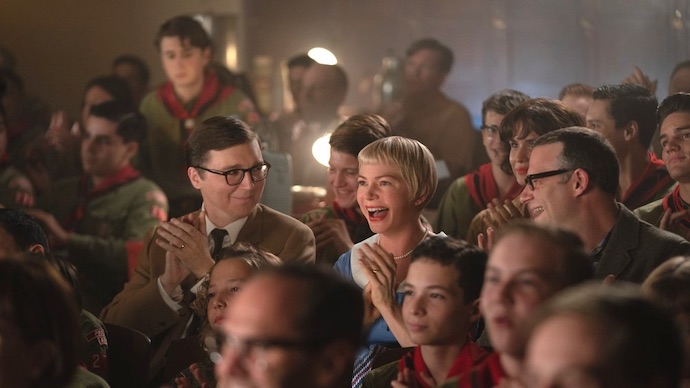
Steven Spielberg's The Fabelmans tells the story of Sammy, a young Jewish boy who moves across the continental US with his family, all while developing a love for film.
In reality, you can replace the word "Sammy" with "Steven," as this film is a frank portrayal of Steven Spielberg's own younger years.
The family dynamic plays the biggest part in how young Sammy sees the world, with a mother and father who love him deeply yet struggle with their own problems within their own marriage.
What Steven Spielberg manages to capture through The Fabelmans is a personal touch that's hard to ignore. Some might even say that before this film came along, Spielberg's work often lacked that tactile touch that could only come from his own life.
With The Fabelmans, Spielberg may have finally delivered to the audience that final part of himself that's been held back.
4. The Big Sick (2017)
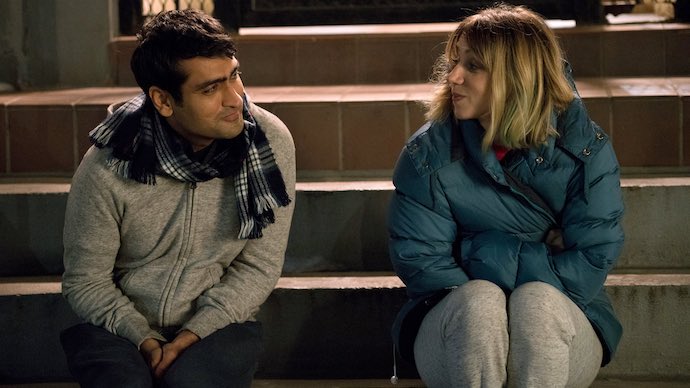
The Big Sick presents to us a tale that'll bust your gut with laughter while yanking at your heartstrings so intensely. At any given moment, you're one breath away from either laughter or tears.
What's most extraordinary about Michael Showalter's The Big Sick is that it was written by Kumail Nanjiani and his wife Emily V. Gordon, with the film's premise being about how they met in real life.
While the two share a relationship that blossoms from the very start, trouble raises its head due to Nanjiani's family dynamic—one that's based on the importance of arranged marriages and religious community.
Despite all that, when Emily ends up in a coma caused by a mysterious infection, Nanjiani never leaves her side.
Few films pack as much of an emotional punch as this one, so much so that The Big Sick often feels entirely made up. But it's also genuinely authentic, which makes it all the more moving by the end.
3. Belfast (2021)
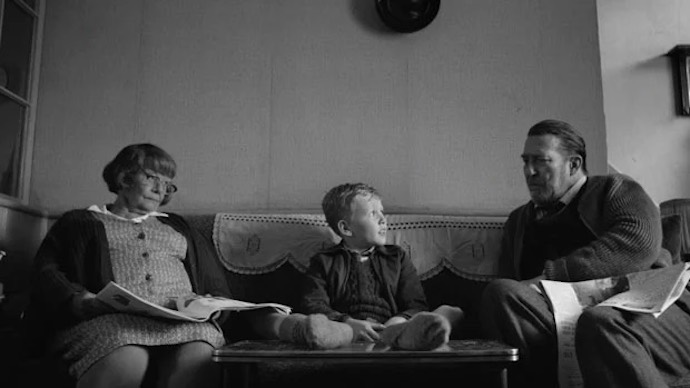
There have been many movies made about "The Troubles" in Northern Ireland—as it's known in the UK—and those films have always painted a broad narrative of one side versus the other.
But in Kenneth Branagh's Belfast, we're shown how that era impacts a specific community. It's an unfiltered look at how disastrous the battles were for a young family in Belfast, and it's startling to watch.
Yet, what's more shocking is how much truth there is in the film. The events depicted in Belfast are a true-to-life retelling of the very same life that Kenneth Branagh lived as a boy.
The IRA and the British Army's war around him and his family broke that community of people for generations, and there's a deep sense of loss that permeates Branagh's Oscar-winning screenplay.
Belfast ends up being a film that shows how one boy grew out of idealism from a young age, while his mother and father have to make decisions that would affect the family for the rest of their lives.
2. The Other Side of the Wind (2018)
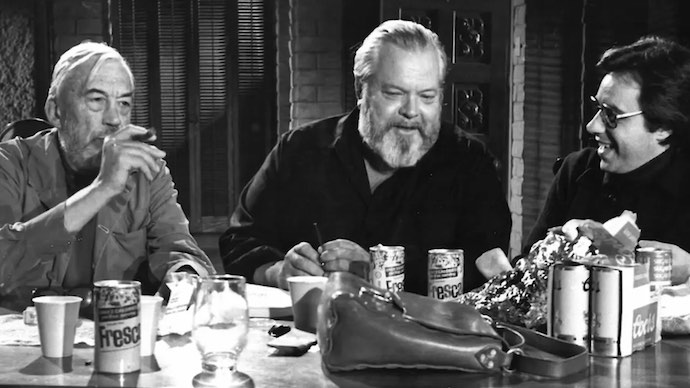
While he was alive, Orson Welles insisted that everybody would think his next film was about him, and they'd be wrong in that assumption.
As of this writing, Welles died long ago—and when he did, he had many unfinished projects to his name. Among them was The Other Side of the Wind, which languished as an unreleased picture.
That is, until Netflix eventually bought the film, finished it, and released it in 2018. That's a full 33 years after the filmmaker died!
The Other Side of the Wind is definitely about Welles, despite his claims of it being entirely made up. The picture shows a faded film director who decides to make one last film as an attempted comeback.
This film is a true attempt by Welles to do the very same thing in reality as shown in the narrative—The Other Side of the Wind was meant to be his Hollywood comeback in the making.
It's a biographical masterpiece by a filmmaker who's regarded as the best to ever do the job, and it's a shame that Welles's work went unreleased for decades, as it shows us a man who had so much left to give.
1. 8 1/2 (1963)
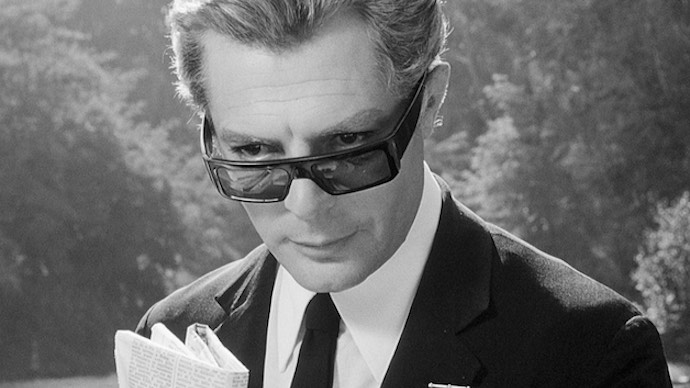
There's no question about it: Federico Fellini was a master of his craft. He was a filmmaker who held audiences in the palm of his hand and never relented their gaze until the final shot played out.
With 8 1/2, Fellini achieved his greatest trick—by making a movie based on an iconic filmmaker (played by Marcello Mastroianni) who has no ideas left. It was an expression of Fellini himself, as if he were telling us directly that he had run out of ideas.
Though he'd go on to make other films, Fellini's mastery of his own emotions and blank slate was an admission of emptiness. Furthermore, Marcello Mastroianni's leading role perfectly encapsulates his friend and director's emotion.
